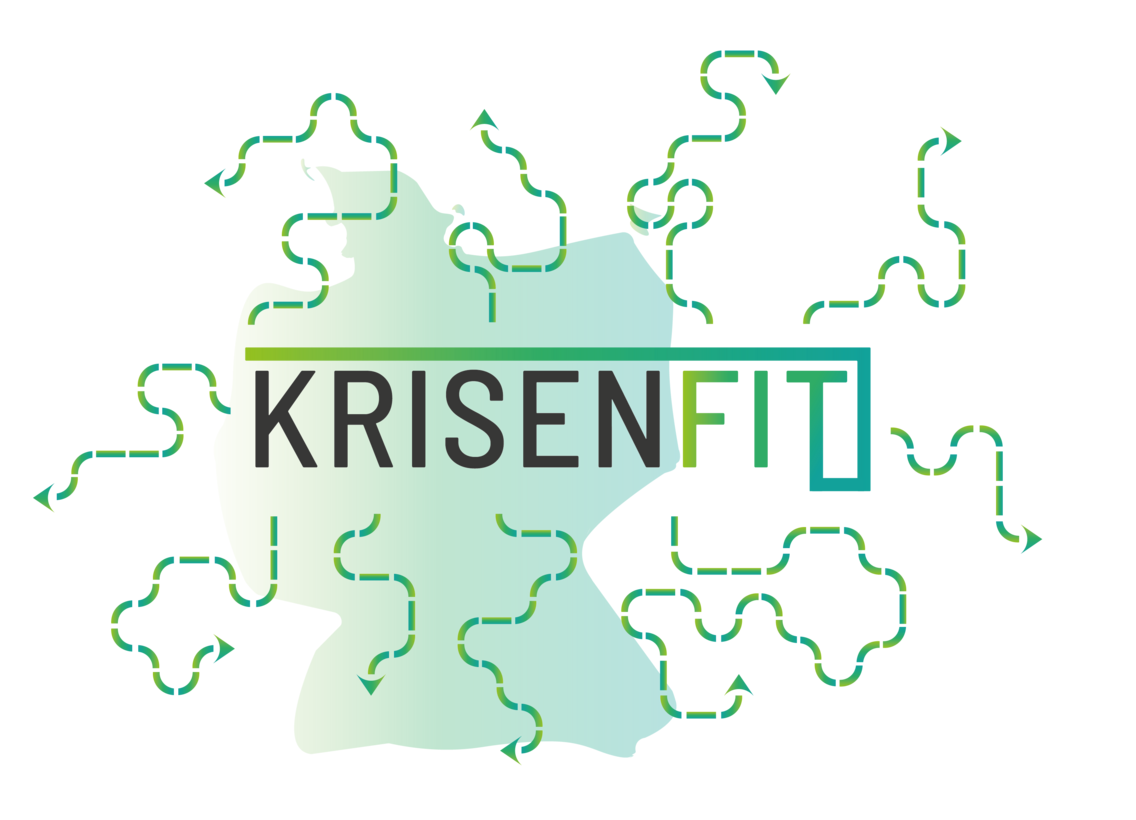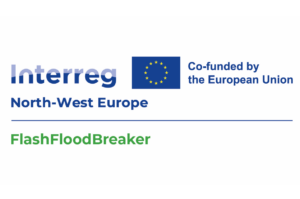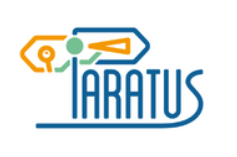More Projects
Besides the projects in which the DKKV is directly involved as a project partner, there are other projects that the DKKV supports in various ways. These projects are presented on this page.
© Pixabay
More Projects of DKKV
This page presents projects that are supported by DKKV in various ways.
KRISENFIT
“Crisis-ready local authorities – strategies and instruments for preparing for multiple situations”
The refugee situation in 2015/16, the COVID-19 pandemic and also the flood and heavy rainfall events in 2021 show a clear need to improve the self-evaluation skills and strengthen the competences of local authorities in the event of a disaster. The KRISENFIT project aims to provide municipal actors with ‘customised’ strategies and tools to maintain and strengthen their crisis management and resilience – the combination of the two is referred to here as ‘crisis fitness’ – in order to be able to act in critical situations in cooperation with other forces. A realistic picture of the available resources and capacities in relation to potential crisis scenarios is fundamental to this. The focus is on the perspectives of municipalities and their stakeholders. Past, present and future crisis scenarios are analysed and evaluated to determine which resources and capacities are assumed to be available and which actually exist from a scientific perspective. By taking into account the actors’ expectations of each other and the resulting implications for cooperation in the federal system (formal and informal, personnel, technical, organisational, etc.), a realistic assessment of their own ability to act and perform and their limits can be gained.
The DKKV is involved as an associated partner in the project.

Project Duration
09.2024 – 09.2027
Funding
Federal Ministry of Education and Research, SIFO
Project Partners
University of Wuppertal, District of Vorpommern-Rügen, City of Duisburg, NRW Fire Service Institute, Crisis and Disaster Research Centre of the Free University of Berlin, Department of Civil Protection, Disaster Control and Property Security of the University of Wuppertal
VW Research Project
‘Transformational Knowledge for Disaster Relief’
The anthropogenic climate change increases the likelihood of extreme weather events and natural disasters in Germany, which has psycho-social, ecological, and economic consequences. The research project ‘Transformational Knowledge for Disaster Relief’ aims to better align disaster protection with the needs of all affected individuals. The different experiences and coping mechanisms of people will be taken into account, with social initiatives and social work organizations playing an important role.
The project promotes the exchange between social services, politics, disaster management agencies, and urban development. Following the flood disaster in 2021, a preliminary study documented personal experiences and solidarity support in the Ahr Valley. These experiences will be utilized to make society more resilient to crises.
A collaborative research process is sought with a network of partners from disaster relief, civil society, social work, and cultural education, where all participants are considered experts.
The DKKV is involved as an associated partner in the project.

Project Duration
09.2024 – 08.2027
Funding
VolkswagenStiftung
Project Partners
Frankfurt University of Applied Sciences, Hochschule Coburg
Modina Crisis resilience through nursing expertise
‘Nurses as indispensable support in civil protection’
The ‘Disaster Nursing in Training Module’ project commissioned by the Federal Institute for Vocational Education and Training involves the development of a module for undergraduate and academic nursing training. In addition, the module can also be integrated into further and advanced vocational training programmes. In addition to the creation of teaching materials, a simulation game will be designed to practise and deepen the necessary skills in realistic scenarios. This further qualification will prepare carers for deployment in crisis and disaster situations and can thus represent a central pillar of care for vulnerable groups in civil protection.
The DKKV is one of six cooperation partners and mainly supports the transfer of knowledge, networking and dissemination of project results.

Project Duration
08.2024 – 07.2024
Funding
Bundesinstitut für Berufsbildung
Project consortium: DRK-Schwesternschaft Bonn e.V., Württembergische Schwesternschaft vom Roten Kreuz e.V., Frankfurt University of Applied Sciences Frauenhofer IAO, IEGUS
Cooperation partner: Bundesverband Lehrende Gesundheits- und Sozialberufe BLGS, Deutsches Komitee Katastrophenvorsorge e.V. (DKKV), Duale Hochschule Baden-Württemberg Stuttgart (DHBW), Fachhochschule Münster, Katastrophenvorsorge und -management – Universität Bonn, Wir pflegen!
FlashFloodBreaker
Make North-West Europe resilient against increasing extreme flash flood events (Emschergenossenschaft)
North-West Europe is facing an increasing number of flash flood disasters due to climate change. Extreme events such as the last one in July 2021 are associated with enormous human and economic losses and damage. The aim of the “FlashFloodBreaker” project is to make North-West Europe more resilient to extreme flash flood events. At the end of the project, organizations responsible for flood protection and residents in risk areas should be able to assess their vulnerability and implement the necessary measures to reduce the risk and strengthen resilience. To achieve this goal, the main outputs of the project will be a unified strategy for North-West Europe, four action plans, eight flash flood modelling and real-time forecasting solutions and the participation of 900 participants in flash flood management training programs.
DKKV is involved as one of twenty-three associated partners in the project’s advisory board and mainly supports the transfer of knowledge, networking and dissemination of project results.

Project Duration
2023-2028
Funding
Interreg North-West Europe
Project Partners
Emschergenossenschaft, Waterboard Limburg, Regional Water Authority of Hollands Noorderkwartier (HHNK), Fire and Rescue services of the Moselle department, University of Liège, Foundation for Applied Water Research (STOWA), Institute of Hydraulic Engineering and Water Resources Management (IWW), Lippeverband, Flanders Environment Agency (VMM), Regional crisis centre of Wallonia (CRC-W), University of Luxembourg
Paratus
Promoting disaster preparedness and resilience by co‐developing stakeholder support tools for managing the systemic risk of compounding disasters (PARATUS)
The PARATUS project aims to increase the preparedness of first and second responders in the face of multi-hazard events and reduce the risks associated with the impact of complex disasters on different sectors. The outcome is the development of a cloud-based online service platform that provides support to reduce dynamic risk scenarios and systemic vulnerability due to multi-hazard disasters.
To achieve these goals, the project will conduct in-depth assessments of the complex interactions between hazards and the resulting impacts in different sectors, as well as analyse the current risk situation and how alternative future scenarios could change the impact of multi-hazard disasters. Based on this analysis, multi-hazard impact scenarios are designed together with stakeholders and developed in four case study areas (including the Caribbean, Romania, Istanbul and the Alps).
DKKV is involved in the project as one of these stakeholders, while the institutional DKKV members UNU-EHS and DLR participate in the project as direct partner organisations.

Project Duration
4 years
Funding
EU Horizon Project
Project Partners
University Twente, University Bucharest, Department of Emergency Situations – Ministry of Internal Affairs, Istanbul Technical University, Istanbul Metropolitan Municipality, University of Vienna, Royal Netherlands Meteorological Institute, Netherlands Red Cross, Resilience Advisors Network, Technical University of Catalunya, EURAC Research Centre, Centre for Systems Solutions, Red Cross Red Crescent Climate Centre, UNU-EHS, FI Group, DeepBlue, DLR, International Institute for Applied Systems Analysis, Asian Institute of Technology, ASFiNAG Alpenstraßen GmbH
Co-Site
Co-creation in the Region – Developing Transfer Systemically and Innovatively (Co-Site)
In the project “Co-Site” open and experimental spaces for practice, education and research are created to support the Cologne Bonn region in the development of climate change adaptation strategies and the integrative planning of critical and green-blue infrastructure. The main focus is on the development of nature-based solutions and the identification of needs in the field of critical infrastructure. The efficiency of information systems, knowledge transfer in universities and practice, social change and changes in digitalization also play an essential role. For this purpose, a real laboratory will be developed and designed together with partners. As an experimental space at the interface of science and society, it will enable non-scientific partners to participate in the entire process of knowledge generation.
The DKKV is involved in the project as one such partner and mainly supports the transfer of knowledge and the dissemination of project results. In addition, the institutional DKKV member StEB is active in the project.

Project Duration
5 years
Funding
Federal Ministry of Education and Research (BMBF) Promotion of research-based idea, knowledge and technology transfer at German universities – “Innovative Hochschule”.
Project Partners
Cologne University of Applied Sciences, Bürgerinitiative Hochwasser Altgemeinde Rodenkirchen e.V., German Society for the Promotion of Social Media and Technology in Civil Protection (DGSMTech e.V.), the mayor and the head of the reconstruction staff of Erftstadt, the fire brigade of the city of Cologne, Stadtentwässerungsbetriebe der Stadt Köln A.ö.R. with the flood protection centre (StEB), antwortING, IUGITAS GmbH


